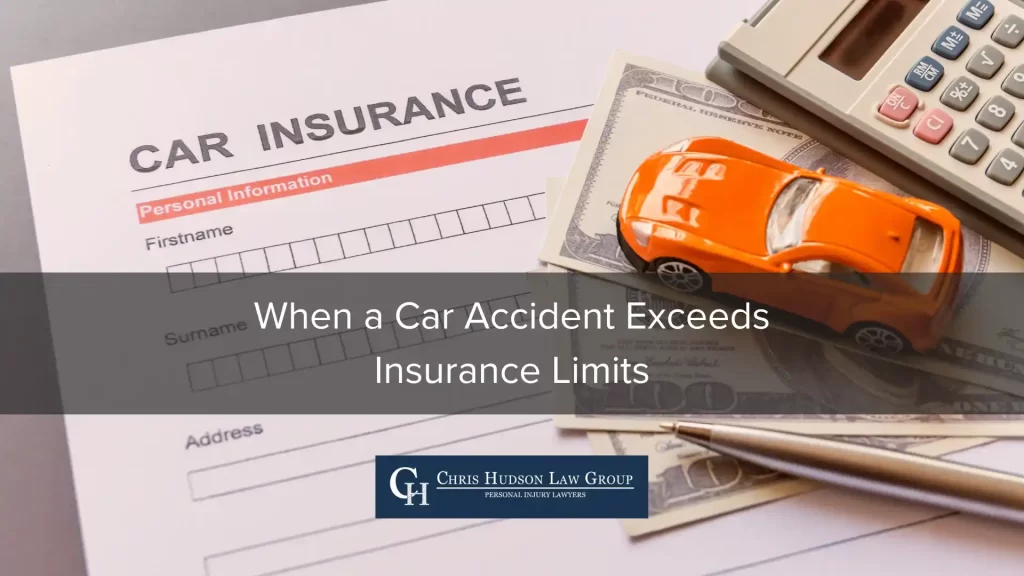
If you get hurt in a car accident, tell your insurance company. This will help you with obtaining compensation for any losses from the crash. It might not be your first thought after the accident. But reporting it to your insurer is important.
Understanding Insurance Limits in Georgia
Georgia is an at-fault car accident state. That means that when someone is involved in a car accident, the person who caused the accident should be liable for compensating the injured party or parties for their losses.
Georgia requires all drivers who are residents of Georgia to have a minimum amount of property damage and bodily injury insurance coverage. The minimum limits are:
- Bodily injury – $25,000 per person and $50,000 per accident
- Property damage – $25,000 per accident
While those may seem like good limits, a serious injury can cause losses that exceed Georgia’s minimum car insurance requirements. Even if there was not a severe injury, vehicles are getting more expensive, and there’s a high chance that an insurance policy with minimum property damage liability coverage would not cover a totaled or severely damaged vehicle.
Injuries That Will Likely Exceed Policy Limits
There are multiple reasons that an insurance claim could exceed someone’s policy limits, including several people being injured during a car crash. However, the following injuries will likely exceed limits even if only one person was injured during the collision.
- Spinal cord injuries
- Facial and dental injuries
- Permanent disabilities
- Amputation
- Paralysis
- Traumatic brain injuries
These severe injuries could require lifetime ongoing medical care; some might even require modifications to someone’s home or vehicle. For this reason, Georgia’s minimum insurance requirements may be of little help if the collision is severe.
How Uninsured Motorist Coverage Can Help
While you are not required to carry uninsured and underinsured motorist coverage in Georgia, it may be worth adding to your policy. Uninsured and underinsured motorist coverage protects drivers in collisions with at-fault uninsured or underinsured drivers. If the at-fault driver is uninsured, your insurance will compensate you for the injuries and damage sustained during the collision. In comparison, underinsured coverage will cover losses over the at-fault driver’s insurance limits up to your underinsured coverage limit.
For example, suppose you are in a collision due to someone else’s wrongdoing, and you sustain severe injuries that result in $75,000 worth of medical bills and lost wages, and $45,000 in property damage because your car was totaled. You could face a difficult road if the driver only has the minimum required coverage. However, if you have underinsured motorist insurance for $75,000 per person, your insurance will cover the $70,000 that exceeds the at-fault driver’s insurance limits. If you opted for only $50,000 in underinsured coverage, your policy would compensate you up to that limit.
Read more: Accidents with Uninsured Drivers
What to Do When Your Personal Injury Claim Exceeds Policy Limits
When an insurance claim exceeds the at-fault driver’s car insurance policy limits, you have several options to seek the remaining compensation you need, including:
- Filing a claim with your insurance company if you have personal injury protection (PIP) or underinsured motorist coverage
- Filing a personal injury claim against the at-fault parties
- Filing a claim with your health insurance company for medical expenses beyond the auto insurance limits
- Filing a lawsuit against the at-fault driver personally
Georgia is a modified comparative negligence state, meaning that even if you were partly at fault for the accident, if your contribution was below 50 percent, you could recover compensation for the portion of the accident where the other driver was at fault. For example, if you are awarded a total of $100,000 for compensation but are found to be 20 percent responsible for the accident, you would receive only $80,000.
Statute of Limitations for Personal Injury Lawsuits
The statute of limitations allows a two-year period for filing a personal injury lawsuit after an accident. To sue someone for injuries sustained in a car crash, your lawsuit must be filed within two years of the date of the accident. There are some limited exceptions that an experienced car accident attorney from Chris Hudson Law Group could explain.
Contact a Personal Injury Attorney for Help
A skilled and knowledgeable Augusta car accident attorney from Chris Hudson Law Group could review your case, walk you through your legal options, and fight for you to receive the compensation you deserve. Contact us today for a free consultation at (706) 863-6600 or online.
Read more:
